History might prove me wrong, but I can't shake the idea that we're still living in the world created by the financial crisis that began in 2007 – the one where we learned what a "mortgage-backed security" was and wondered how that was ever a good idea. The recession that followed took down Lehman Brothers, exposed Bernie Madoff's investment fraud, crashed economies in countries as different as Iceland and Greece, sent two of the Big Three U.S. automakers into bankruptcy and launched the phrase "too big to fail" into our lexicon.
We still live with its effects today – with a housing crisis that constantly evolves and worsens, with surges in inflation and government debt that has reached numbers virtually imponderable in scope. And even though everything that happened on the other side of COVID lockdowns seems like a very long time ago now, there's still a nagging worry that yet another catastrophic economic crisis is lurking around the corner, ticking inside yet another financial instrument created to make a run around some crisis-spawned regulation.
If there's any upside it's that it produced a few good movies. There were documentaries like the Oscar-winning Inside Job (2010) and films such as HBO's Too Big to Fail (2011), the austere Margin Call (2011) and the slightly more lighthearted and also Oscar-winning The Big Short (2015). Overlooked in this context, though, is a film that came out when the walls were still collapsing and the recession was surging through the economy, leaving a trail of bankruptcies and mass layoffs in its wake – Jason Reitman's 2009 comic drama Up in The Air.
The film begins with a title sequence showcasing views of America you'd see from a plane window – suburbs and farms and downtowns and those puzzling man-made geographic features that you promise you'll research as soon as you land but forget about – scored to the late Sharon Jones and the Dap-Kings covering Woody Guthrie's "This Land is Your Land". The camera finally settles on Ryan Bingham (George Clooney), who fires people for a living.
He explains that he's a hired gun, called in by cowardly managers and bosses to handle layoffs, employed by a company that mines a specialized vein in the ruefully named realm of human resources. "This is what we do," as he says later in the film. "Take people at their most fragile and set them adrift."
We see him at work, facing a montage of reactions from people who've just been told that their "position at this company is no longer available." Reitman used non-actors for many of these roles, real people who'd recently been downsized, though when he needs to explore the confrontation dramatically he uses actors like Zach Galifianakis, who plays Steve, the sort of employee whose unpredictable, emotional reaction suggests how badly this kind of thing can go, and how good Ryan is at his job.
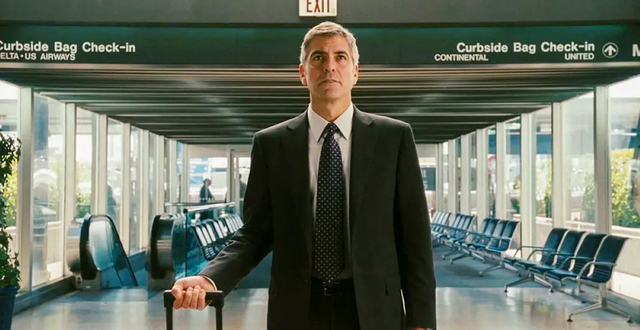
Ryan's job keeps him on the road for 322 days a year – or rather in the air, traveling to regional offices and corporate headquarters all over the country. "To know me is to fly with me," he tells us, while we watch him pack his carry-on and efficiently navigate through airports, bypassing lineups with his frequent flier upgrades but not the banal but relentless indignities of airport security and the TSA.
He lives in Hampton Inns and Hiltons and travels the last miles to his appointments in rental cars, much of the logistical grunt work handled by an executive assistant back at head office. One night in a hotel bar he meet-cutes with Alex (Vera Farmiga), another frequent flier; they compare the pluses and minuses of various loyalty programs and he shows off his American Airlines Concierge Card, which provides perks no mere economy class traveler could hope to see.
He says that it's great, but that he has a much bigger number in mind before he'll feel he's reached the pinnacle of frequent flying. She flirts with him, asking just how big that number might be, which leads to them spending the night together in his room – once he can find the key card in the stack in his wallet. They make plans to see each other again, coordinating their schedules on their laptops, sexting each other from hotels in different cities.

It's a very modern existence, and Ryan is openly, even blithely content with the stale air and sameness of all those hotel rooms, heavily chlorinated indoor swimming pools, airport lounges and breakfast buffets until Craig (Jason Bateman), his boss at Career Transition Counseling, calls him in for an all-hands meeting at the head office in Omaha.
The good news, Craig says, is that with the economy crashing all around them business has never been better. The bad news is that Natalie (Anna Kendrick), a recent hire and Cornell grad, has come up with a way to fire people by video conference that will save them 85% on travel expenses for Ryan and all the other point men and women flying all over the country swinging the axe.
With not just his livelihood but his lifestyle threatened, Ryan shows how Natalie's scripted, remote layoff protocol isn't just implausible but could open them up to lawsuits. Craig decides to send Natalie out on the road with Ryan as his wingman, to learn about all the variables and subtleties involved in taking away other people's livelihoods.
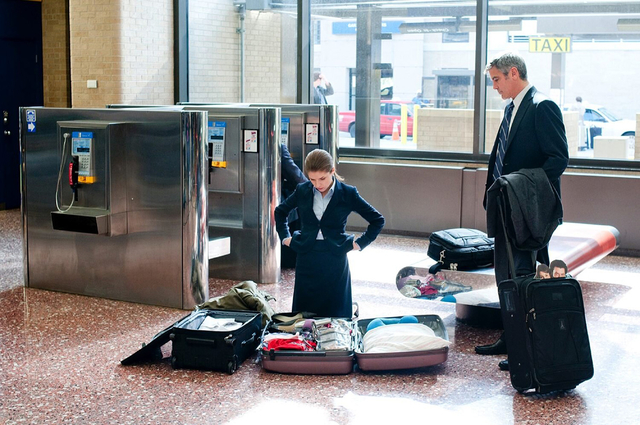
The first thing Ryan teaches Natalie is that she's a bad traveler. Since hours wasted in airports and on planes turn into cumulative unproductive weeks, he starts by showing how poorly she packs and schools her on the hidden protocols of airport security lineups.
Don't get in lines behind old people who travel without respect for how little time they have left, or families with young children for obvious reasons. Don't get behind men who look Middle Eastern either, as they're magnet for spot checks. Asians are the best, he says – they travel frequently, pack light, and have a preference for slip-on shoes.
"That's racist," Natalie tells him, but since this film is over fifteen years old, Ryan brushes off her outrage by saying that stereotyping also saves him time.
She also learns how actually firing people in person, in a boardroom a few yards from their desk and their co-workers, differs considerably from the process she imagines being done by easily trained and cheaper staff wearing headsets in cubicles. There's the anger and betrayal and fear, and the unexpected reactions, like Karen (Tamala Jones), who coolly tells her them she's unbothered by her loss of a job, that she has a plan, and that it involves jumping off a bridge.
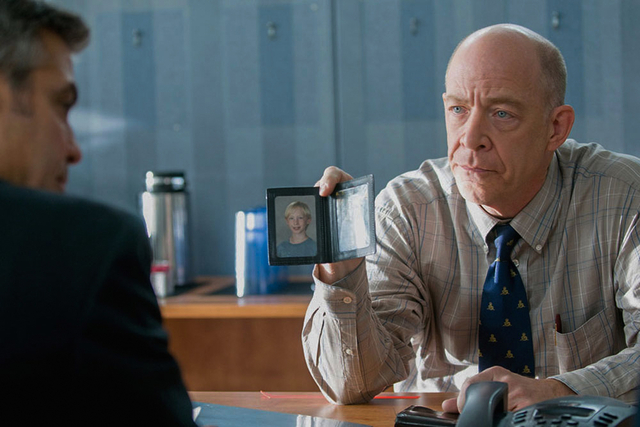
And there's Bob (J.K. Simmons), an older man who responds with cool indignation when Natalie takes the lead in his dismissal. He parries all her boilerplate and acidly rejects her attempt to use statistics – an evocation of unearned expertise that looks unseemly coming from a 23-year-old talking to a man in his 50s – until Ryan steps in to save the situation.
He's done his research. He's seen that Bob trained at culinary school before being tempted away from an insecure career path by the promise of steady pay. He uses his trademark tactic – telling the newly jobless that every successful person has been where they are now, and that this is an opportunity. What, he asks Bob, did they pay you to give up on your dreams?
It's a brilliant move, if you think a man in his 50s who's been out of the restaurant industry for what we have to assume is decades would be willing to start from the bottom again and accept the poor pay and long hours to provide for a family he'd see even less. But it taps into that part of the American Dream that insists everyone can be an entrepreneur – potential that mere employment has stolen from them.
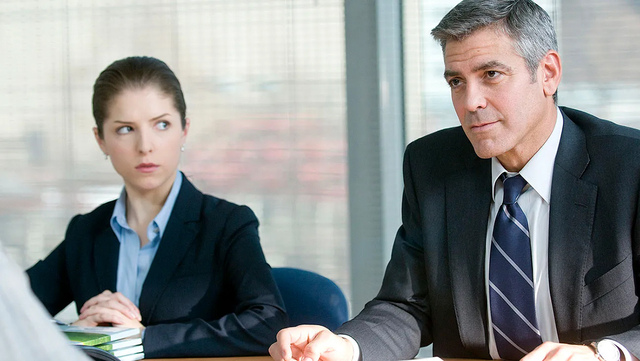
Simmons is a great actor, a ringer who sells the scene for Reitman. But I don't remember being laid off anything like this. It's been almost sixteen years since I followed my editor into the publisher's office where I saw Steph and John, our union reps, sitting on chairs in the corner by the HR person. Perhaps if I'd been a bit more observant I'd have noticed the hired security guy sitting on a chair in the lobby by the office, reading a magazine.
His only job that day was to prevent me and everyone else who would be called into that office from sprinting back into the newsroom – to grab our things from our desk, to hit the button on my computer that would release a deadly virus into the server, to start screaming at our now-former colleagues to get out while they can. Part of me considered trying it just to see how long it would take him to get out of that chair and catch up to me with his big gut and barrel chest stuffed into that bomber jacket with big silver patches.
(I had been a security guard once, many years earlier, in a building not far from the newspaper's offices, and I knew that the job didn't pay enough for that sort of trouble.)
I remember being angry, not at losing a job I'd come to hate, but at having to endure the whole ritual presided over by my editor and the assistant publisher as they sat on the other side of that desk. As I wrote a day or so later on the blog I kept at the time (long since taken down):
"It took me a moment to realize what was happening, but once it started, I couldn't wait for it to be over. What made it so awful was the tedious scripting of the whole thing, and the boilerplate language: 'unfortunately we've had to eliminate some positions ... I'm sorry to have to tell you ... just tell Ruth what you'd like her to get from your desk...'"
Waiting with Steph in the lobby for the cab they'd called, it occurred to me that she'd probably known about this for a while now, and that she'd been giving me assignments for the past week knowing that I'd never be able to file them. "I call my wife on her Blackberry, tell her I'll be home soon, and we arrange to meet in a coffee shop to talk about how to tell the girls," I wrote on the blog. "My unemployed life begins now."
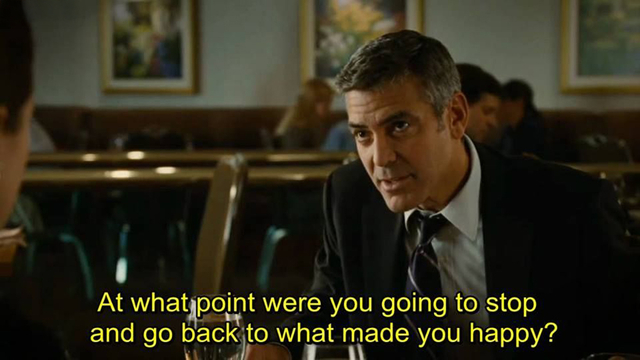
While they're still out on the road Natalie's boyfriend breaks up with her by text message. She admits to Ryan and Alex that she'd turned down a job in San Francisco to move with him to Omaha. Kendrick does an excellent job with Natalie, who might have been a millennial caricature – entitled, incurious, utterly certain of assumptions she's never had to question – if a less sympathetic actress had played her.
I try not to trade in celebrity gossip, but I couldn't help but notice when, last year, Kendrick revealed that she'd frozen her embryos in anticipation of marrying a man and starting a family. The relationship ended after six years, when he admitted he was interested in someone else. "There was an inherent thing," she said, "of me being so rejectable that this person who loved me very deeply for six years, it suddenly occurred to him, how awful I was or something."
The whole story – the successful, famous actress feeling discarded, the frozen embryos – prompted an unaccustomed surge of empathy for a celebrity, an emotion that I'm tempted to describe as fatherly, no doubt foregrounded by her performance in Reitman's film.
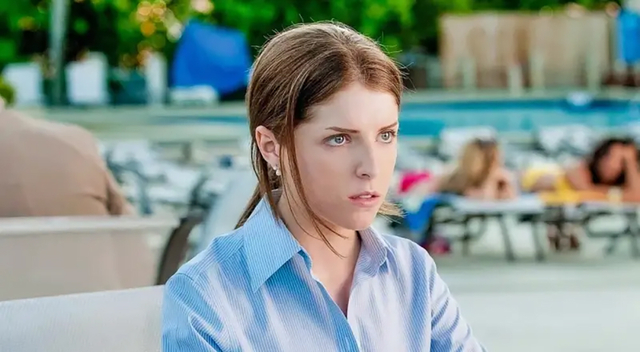
While the two women compare their expectations with men and relationships, Ryan looks on admiringly at the woman he only meets in hotels and airports. He seems pleased to have met someone whose expectations are as minimal as his own. "I am the woman that you don't have to worry about," she tells him.
Which in story terms means his expectations are changing, so he invites her to be his date at the Wisconsin wedding of Julie (Melanie Lynskey), his younger sister. Ryan is genially estranged from his family, who have come to expect that they will do everything without him, so his sudden arrival, not alone, is a shock. The weekend gives him an opportunity to show Alex where he comes from, and to step up as both brother and surrogate paterfamilias when Julie's fiancé Jim (Danny McBride) gets cold feet.
It also sets up a big dramatic twist near the end of the picture that anyone will see coming a mile off.

Up in the Air is based on a novel by Walter Kirn, published in 2001, in a world of Palm Pilots, email and voice messages. The Ryan in Kirn's book is divorced and a bit seedier than the one played by Clooney; there's no Natalie and the career crisis threatening the protagonist isn't the technology of remote firing but a resignation letter he leaves on his boss's desk while waiting for a job offer that might not come, and a paranoid fear that someone is cashing his air miles. Reitman and co-screenwriter Sheldon Turner shifted its setting to a contemporary one: the recession caused by the subprime mortgage crisis.
The number that Ryan is striving to hit – the one that will launch him into elite frequent flier status that less than a dozen people have ever achieved – is just a million miles in Kirn's book. In Reitman's movie it's 10,000,000 miles – a kind of status inflation. Kirn's book was doing well until September 11, 2001, when sales dried up, probably because of the cover art – men in suits flying through the air while one of them hits the ground in flames – and a sudden, brief but intense squeamishness about air travel.
(Kirn is that rarest of things – a serious novelist who doesn't disguise his conservative politics. He's a regular guest on Greg Gutfeld's Fox News talk show, co-hosts a podcast with journalist Matt Taibbi, and his Twitter feed since Donald Trump's second inauguration has been openly exuberant.)
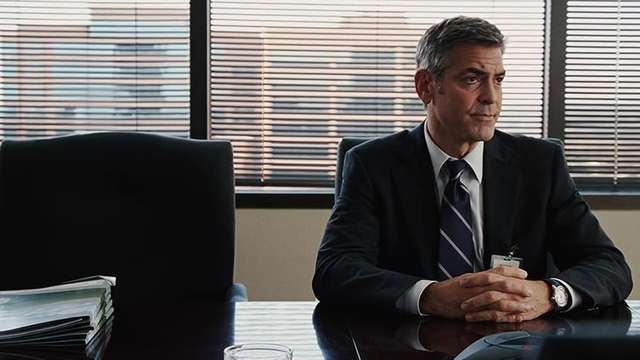
When I first watched Up in the Air, not long after being laid off, I sat down assuming – based on the trailer – that it was about a man embracing the bland but comfortable alienation of modern business travel. Three times in my life I've lived something close to the world of Ryan Bingham, flying to do stories and photo shoots during those rare – and increasingly infrequent – periods when old media had the budget and inclination to send me out there.
I enjoyed it every time. I like hotels, from venerable ones like the Waldorf Astoria to a Motel Six in Montana just outside Yellowstone National Park. I can endure air travel thanks to an austere regimen that helps me disassociate from its many discomforts. I expected a film that would explore this veneered, upholstered, foil-packed, artificially-scented world.
What I got instead was a film about rejection, the fear of rejection, and how adults build rituals and emotional armour to cope with either the memory of or the anticipation of rejection. And a story that suggested that losing a job – even one you no longer enjoyed – could be even more traumatic than the end of a relationship. As Reitman's film tells us, being fired for most people is equivalent to the death of a loved one.
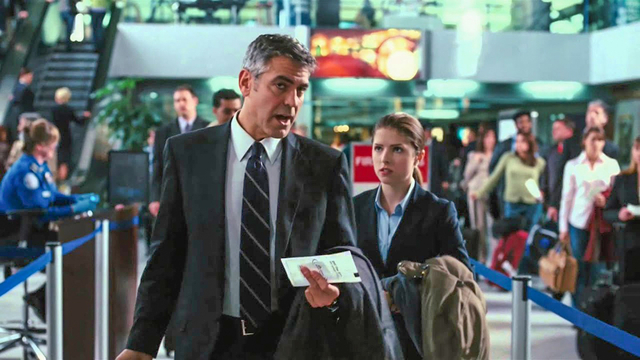
Up in the Air made over $166 million at the box office on a budget of just $25 million and got six Academy Award nominations, including best picture and best director and nods for the performances of Clooney, Farmiga and Kendrick. The screenplay won a BAFTA and a Golden Globe, but the film has become overlooked – a sombre comedy and a period piece, its setting and subject one that people who lived through it might want to forget.
My former employers tried to spin the layoffs at our paper as the result of financial insecurity in the wake of the American banking crisis – much as their press release said that "Rick McGinnis has left his position as movie and television critic" when, of course, it wasn't so much about jumping as being pushed. The truth is that, like most newspapers, they were desperate to save money in a failing industry. It was a bad year in the newspaper business, with over a hundred papers closing in 2009.
A year later the editor who fired me was fired. The paper closed its branches in other cities, rebranded itself and finally ceased publishing over five years ago. Its parent company has shed employees with regular layoffs and was put up for sale a year after closing the paper that fired me. If you still have a job, in either old media or new, you live with a near certainty that you'll end up in an office or meeting room with someone telling you that it's a generous offer, that counseling is available for up to a year, and that you need to think of this as a new beginning.
Club members can let Rick know what they think by logging in and sharing in the comments below, as access to the comments section is one of many benefits that comes along with membership in the Mark Steyn Club.






















